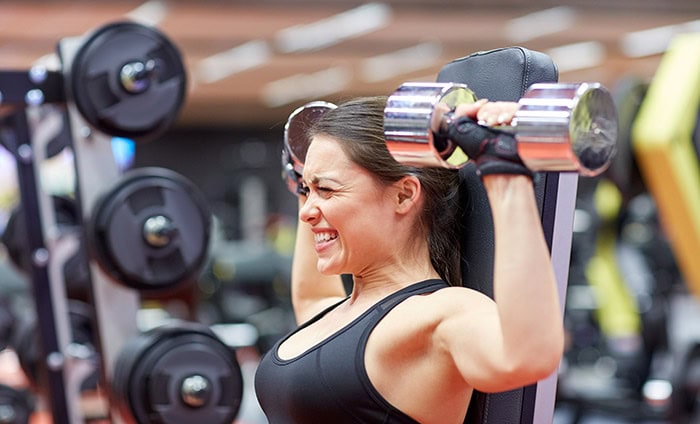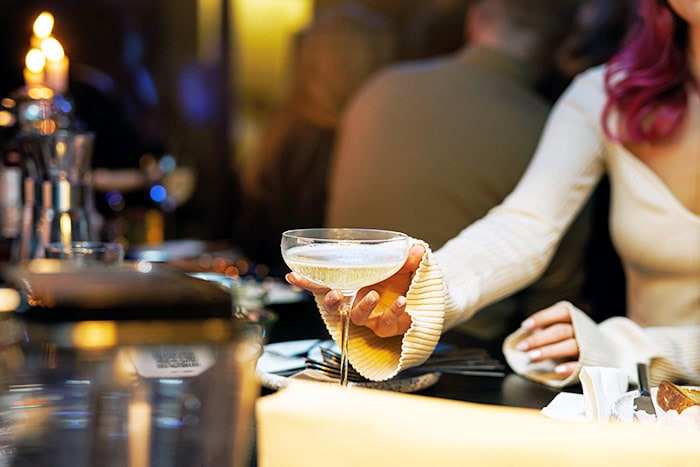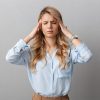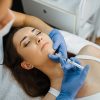Botox Aftercare and Alcohol: What You Should Know
Botox is one of the most popular cosmetic treatments in the UK, helping to soften fine lines and refresh your appearance with little to no downtime. But after your injections, there are a few important aftercare steps that make a real difference to how well the treatment works.
Knowing what to avoid in the first couple of days is just as important as the treatment itself, and one of the biggest questions is around alcohol.
One of the most common questions at my Wimbledon aesthetic clinic I hear from patients in from Raynes Park, Kingston, Surbiton, Richmond, and across South West London is whether it’s safe to drink alcohol after Botox. Let’s look at why alcohol can interfere with healing, how long you should wait, and what else you should avoid to get the best, most natural results.
Can I Drink Alcohol After Getting Botox?
The short answer is no — not immediately. Alcohol thins the blood and widens blood vessels, which increases the risk of:
- Bruising at the injection sites
- Swelling or redness
- Slower healing of the skin
Even one or two glasses of wine can make a noticeable difference, especially within the first 24 hours after treatment. For some people, alcohol can also make them feel warmer or flushed, which may worsen swelling in the treated areas.
While having a single drink is unlikely to completely ruin your Botox, it does raise the chances of side effects and less predictable results. Avoiding alcohol for the first day or two after treatment gives your body the best chance to heal smoothly and ensures the Botox has time to settle exactly where it should.

It’s best to avoid alcohol for 24–48 hours after Botox — even a small amount can increase bruising and swelling.
Why Should You Avoid Alcohol After Botox Injections?
There are three main reasons alcohol and Botox don’t mix:
- Increased bruising – alcohol makes small blood vessels more fragile, meaning tiny leaks under the skin are more likely. This can make injection marks more visible and take longer to fade.
- Inflammation – alcohol dehydrates the skin and can worsen redness, puffiness, or a flushed appearance in the treated areas.
- Healing time – alcohol can slow down your body’s natural recovery process, which means swelling and tenderness may last longer than usual.
For most patients in my aesthetic clinic in Wimbledon and across South West London, the best results come from giving your skin a calm, supportive environment in the first couple of days. By skipping alcohol, you give the Botox the chance to settle properly and your skin the chance to recover quickly, helping you achieve the most natural-looking outcome.
How Long After Botox Can I Drink Alcohol?
The safest advice is to wait at least 24 hours after Botox before drinking alcohol. Many practitioners, including myself, recommend waiting 48 hours for maximum caution — especially if you are prone to bruising.
If you do choose to drink after this window, keep it moderate. Heavy drinking can still affect your skin quality and may make Botox results less noticeable over time.
What Happens If I Drink Alcohol After Botox?
If you drink alcohol too soon after your treatment, you may notice:
- More obvious bruising around injection sites
- Longer-lasting swelling
- A higher chance of uneven results
It won’t “cancel out” Botox completely, but it may reduce the quality of the outcome. Think of it as stacking the odds in your favour: by skipping alcohol for a couple of days, you protect your investment in the treatment.
What Should You Avoid After Botox?
Alcohol isn’t the only thing to be cautious about. To get the best results, it’s important to avoid the following for the first 24–48 hours after treatment:
- Strenuous exercise – intense workouts raise blood pressure and circulation, which can increase bruising and risk Botox spreading away from the intended muscles. Light walking is fine, but hold off on the gym, running, or heavy lifting.
- Heat exposure – saunas, hot tubs, sunbeds, and even very hot showers can dilate blood vessels, leading to swelling, redness, or uneven results.
- Lying flat – stay upright for the first 4–6 hours. This prevents Botox from shifting before it has fully settled.
- Touching or massaging the area – avoid rubbing or pressing the treated sites, as this can move Botox into neighbouring muscles.
- Certain medications – aspirin, ibuprofen, and other blood-thinning drugs can increase bruising. Always check with your GP before taking them after treatment.
By following these simple steps, you help your Botox set in the right place, reduce the risk of unwanted side effects, and ensure results last as long as possible. Most patients find that once these first couple of days have passed, they can return to their usual routine without any issues.
For mothers who are currently breastfeeding, I’ve written a detailed explanation on Botox safety during breastfeeding to help you make informed decisions.
If you’re also unsure about workouts, I’ve written a separate guide on how soon after Botox you can safely exercise.
| ✅ Safe to Do | ❌ Best to Avoid |
| Light walking or gentle movement | Strenuous exercise (gym, running, heavy lifting) |
| Normal face washing with mild cleanser | Hot showers, saunas, steam rooms, hot tubs |
| Staying upright and moving around | Lying flat for 4–6 hours |
| Taking paracetamol if needed | Aspirin, ibuprofen, or blood-thinning medication (unless prescribed) |
| Using sunscreen and staying cool | Sunbeds or direct strong sun exposure |
| Normal daily activities (work, light chores) | Touching, rubbing, or massaging the treated areas |

Vigorous exercise should be avoided for the first 24 hours after Botox to protect your results.
What Can Mess Up Botox?
Botox is a very safe and effective treatment, but certain factors can reduce its effectiveness or even cause uneven results if not taken seriously. Most of these are within your control, which is why good aftercare is so important.
The main things that can interfere with Botox include:
- Drinking alcohol too soon – increases bruising, swelling, and slows healing.
- Vigorous exercise in the first 24 hours – raises circulation and may cause Botox to spread away from the target muscles.
- Excessive heat exposure – saunas, steam rooms, hot tubs, sunbeds, and prolonged sunbathing can all reduce results.
- Not following aftercare advice – touching, rubbing, or lying flat too soon after injections increases the risk of uneven results.
- Poor injection technique (rare) – if Botox is placed incorrectly, results may be less effective. This is why it’s essential to choose an experienced, medically qualified practitioner.
At my Wimbledon aesthetic clinic, I take the time to explain aftercare clearly and answer any questions, so patients leave feeling confident about what to do — and just as importantly, what to avoid.
| ❌ Risk Factor | 🔎 Why It Matters |
| Drinking alcohol too soon | Increases bruising, swelling, and slows recovery |
| Vigorous exercise (first 24 hrs) | Raises circulation, may spread Botox from target area |
| Excessive heat (sauna, sunbed, tanning) | Dilates blood vessels, reduces Botox longevity |
| Ignoring aftercare advice | Rubbing, massaging, or lying flat too soon can cause uneven results |
| Inexperienced injector | Incorrect placement reduces effectiveness or creates unnatural results |

Drinking alcohol too soon – increases bruising, swelling, and slows healing.
Additional Questions People Ask
Can I Smoke After Botox?
Smoking won’t cause Botox to move or spread, but it does damage the skin’s structure over time. Regular smoking reduces collagen and elasticity, which accelerates ageing and means your Botox results are less likely to last as long as they should.
Can I Take Painkillers After Botox?
Paracetamol is safe to take if you experience mild discomfort after Botox. However, avoid aspirin, ibuprofen, or other blood-thinning medication unless prescribed by your doctor, as they can increase the risk of bruising and swelling around the injection sites.
Can I Drink Coffee After Botox?
Yes — coffee is absolutely fine after Botox. Caffeine does not interfere with the treatment, although drinking very large amounts may slightly increase blood pressure or make bruising a little more noticeable, so moderation is best.

Enjoying a coffee is perfectly fine after Botox — unlike alcohol, caffeine won’t affect your results.
Final Thoughts
Drinking alcohol after Botox won’t undo your treatment, but it can make side effects more likely and results less predictable. For the best outcome, avoid alcohol for at least 24–48 hours, follow aftercare advice, and give your skin time to heal.
📍 If you’re considering Botox in Wimbledon, Raynes Park, Kingston, Surbiton, Putney, or anywhere in South West London, I’d be happy to guide you through safe aftercare and treatment plans tailored to your lifestyle.
During your free consultation, we’ll discuss your skin concerns, assess your facial structure, and decide together which treatment aligns best with your needs.
Book your free consultation here →
Or call me directly: 07702 389 636
Warm regards,
Dr Suresh Mohan
Contact Dr Suresh Mohan
Considering Book FREE consultation! My clinic is dedicated to providing this advanced skin rejuvenation technique, ensuring top-notch care in the heart of London.
If you have a specific question, want to book a free consultation or request a call back, please fill in the form below, and I will get back to you as soon as possible.
By clicking ‘Send enquiry‘ you agree to Dr Mohan Clinic’s Privacy Notice.








